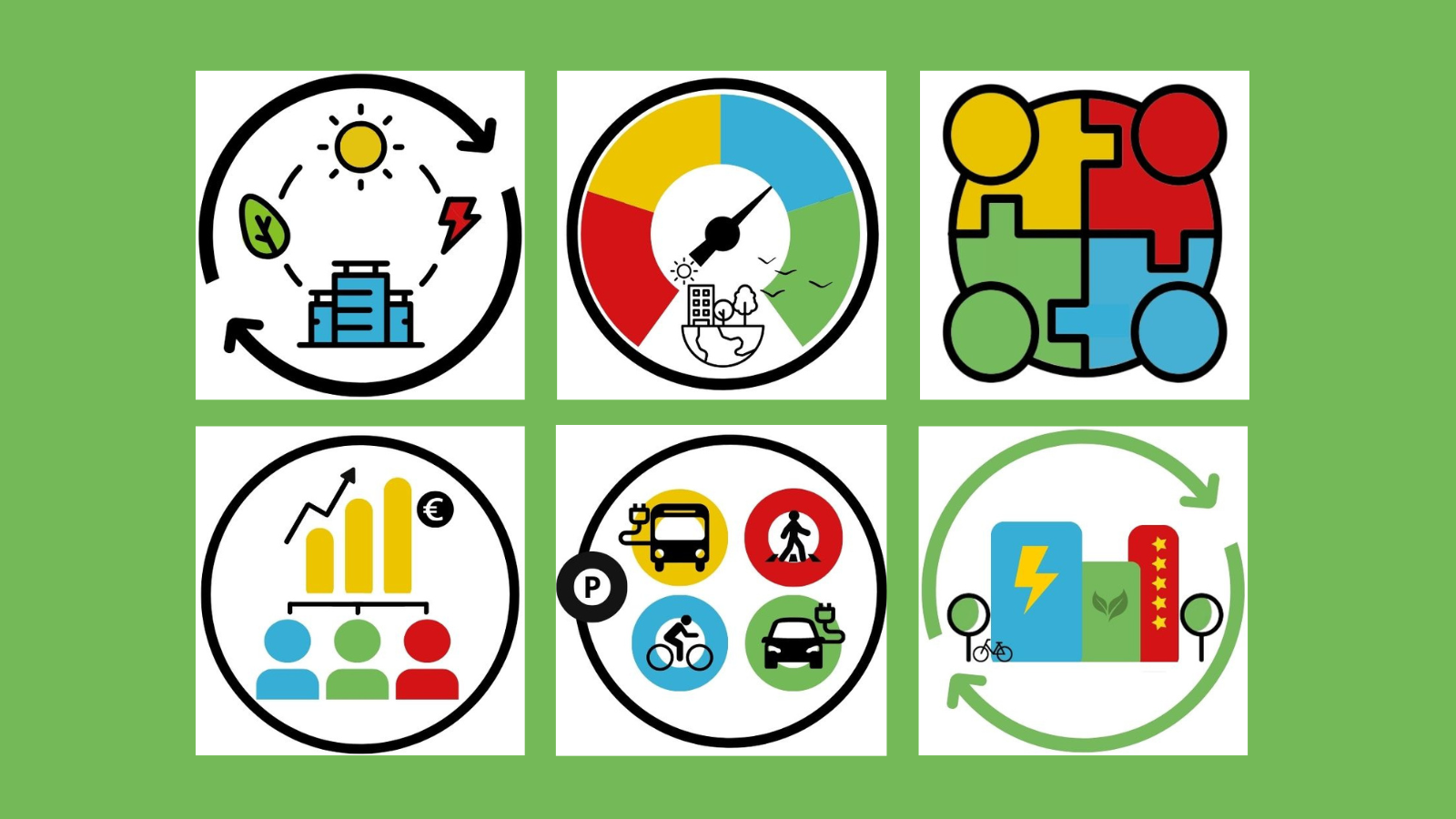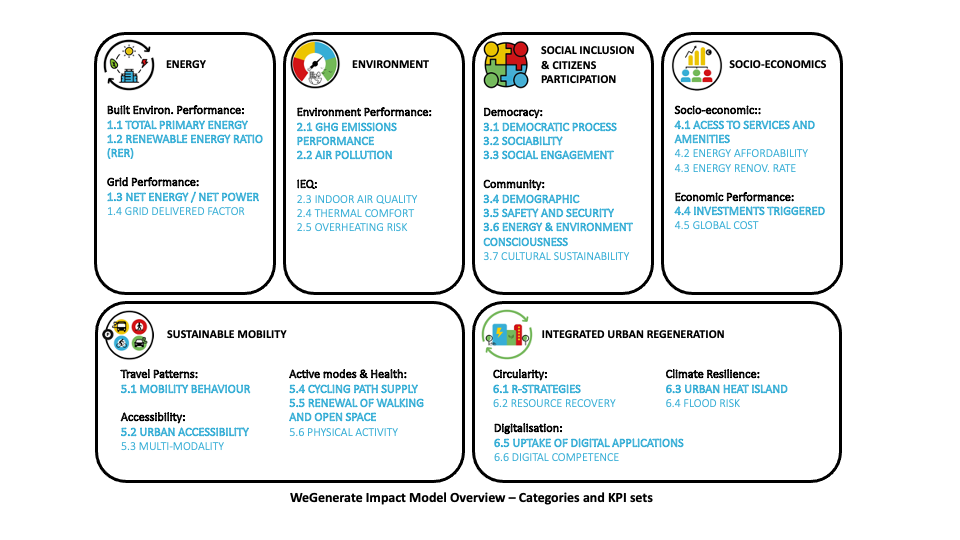
23.07.2024
Upcoming Release of Comprehensive Impact Model for Urban Regeneration
The WeGenerate project is developing the Impact Model for designing and assessing successful urban regeneration in People-Centric Sustainable Neighbourhoods (PCSN). A PCSN aims to empower communities and reduce greenhouse gas emissions through sustainable and inclusive urban interventions, focusing on the interaction and integration between the built environment, open spaces, urban services, communities, energy, and mobility systems, supported by digital tools.
The WeGenerate Impact Model provides a framework for stakeholders from various European communities to collaboratively develop and apply an impact assessment framework. This model will be tested and refined across demo sites in Italy, Portugal, Romania, and Finland, aligning with EU harmonisation and standardisation strategies.
The model emphasises a neighbourhood-based integrated approach, considering social inclusiveness and low carbon lifestyles. It incorporates indicators from EU methodologies to assess the performance of PCSN, focusing on environmental, social, well-being, and economic impacts, with key categories including Energy, Environment, Social Inclusion & Citizens Participation, Socio-Economics, Sustainable Mobility, and Integrated Urban Regeneration.
The model features:
- 6 KPI Categories for sustainable urban domains.
- 14 macro-objectives.
- 20 Core Indicators for measuring sustainability and inclusiveness.
- 13 Optional Indicators to complement the assessment.

The aim is to provide guidelines for evaluating urban regeneration projects targeting sustainable and inclusive communities, assessing long-term multidimensional impacts. The draft Impact Model (D7.1) will soon be available on the project's website, reflecting the authors' views pending European Commission approval.
Download File
SHARE THIS ARTICLE